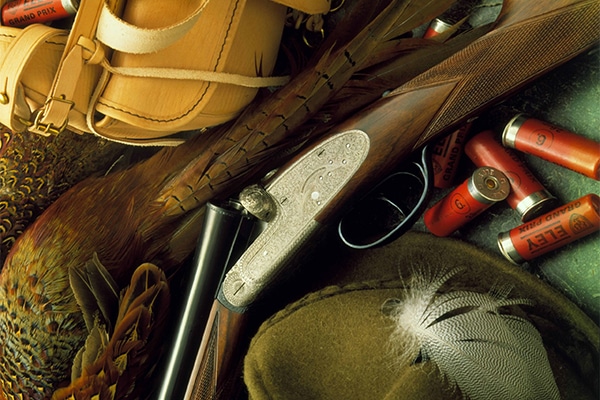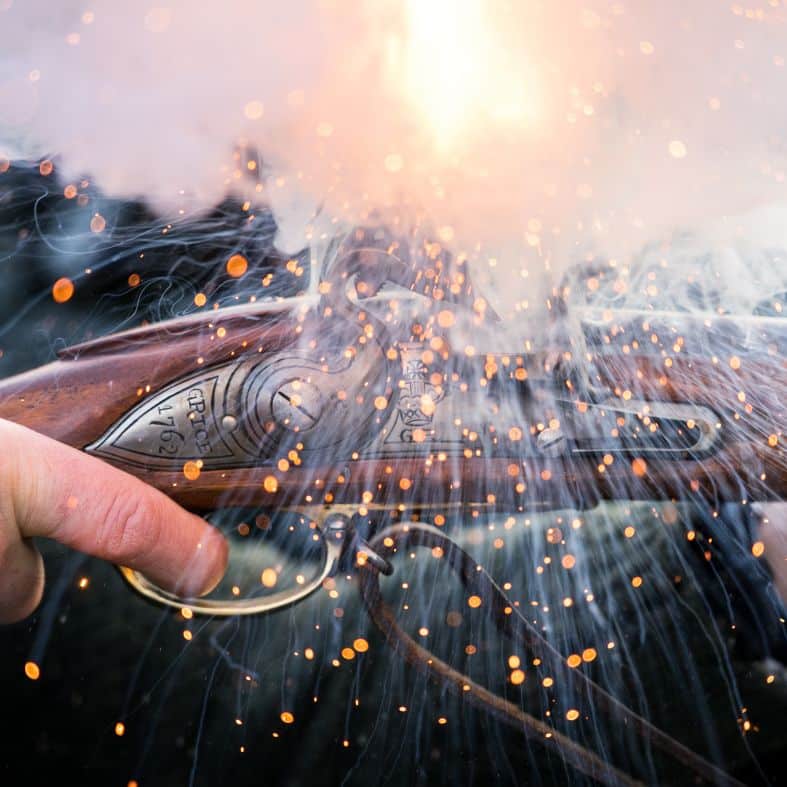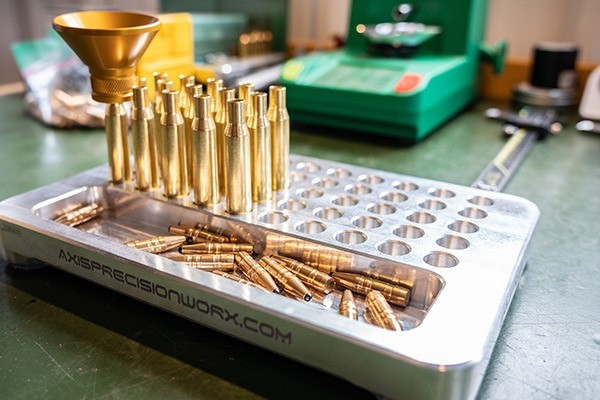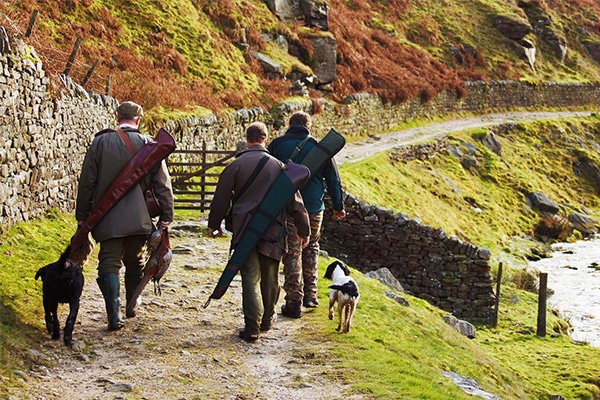
Firearms use
Guidance on issues such as additional conditions on firearms certificates, the law around borrowing guns and access to shooting land.
Get information on the legal shooting season for mammals and birds in the UK.
Apply for funding for your project or make a donation today
Comprehensive information and advice from our specialist firearms team.
Everything you need to know about shotgun, rifle and airgun ammunition.
Find our up-to-date information, advice and links to government resources.
Everything you need to know on firearms law and licensing.
All the latest news and advice on general licences and how they affect you.


This branch of the target-shooting sports has been growing in popularity over the past few years. It involves using either original old guns, or replicas of modern manufacture.
The sport is particularly attractive to those who have an interest in history – in our heritage.
A muzzle-loading gun is loaded – as the name implies – from the muzzle by pouring a measured amount of gunpowder down the barrel, then ramming a bullet on top of the gunpowder.
This is then fired in one of a number of different ways, depending on the type of firearm; it might be a flint striking steel to make sparks into a small pan of gunpowder on the side of the gun, and the flash from this passes through a small hole into the barrel. This is known as a “flintlock.”
There are a number of other methods of firing muzzle-loading guns, varying from a piece of smouldering string (known as a “matchlock”) to a percussion cap, which is not unlike the caps found in toy guns.
Although not many people are aware of it, a number of our common expressions, such as “a flash in the pan,” “going off at half-cock,” and “Lock, stock and barrel” come from the use and operation of these guns.
Muzzle-loading revolvers are also very popular with target shooters, with many different designs in production. Most of these are faithful reproductions of original, historic guns, and this represents an opportunity for anyone interested in the history of these guns to buy and use them without having to pay a great deal of money for original (and often very valuable) guns.
There are many different types of target competition for muzzle-loading guns, and as the Governing Body for muzzle loading within the UK the Muzzle Loaders Association of Great Britain (MLAGB) offers events for most muzzle loading firearms.
Muzzle-loading shotguns, which fire a large number of small round pellets rather than a single bullet, are also used for some clay pigeon shooting and game shooting.

Guidance on issues such as additional conditions on firearms certificates, the law around borrowing guns and access to shooting land.

The Firearms Act 2023 received Royal Assent in September 2023, confirming it as new legislation.

All firearms and shotgun certificate holders must comply with specific conditions relating to security.
Sign up to our weekly newsletter and get all the latest updates straight to your inbox.
© 2025 British Association for Shooting and Conservation. Registered Office: Marford Mill, Rossett, Wrexham, LL12 0HL – Registered Society No: 28488R. BASC is a trading name of the British Association for Shooting and Conservation Limited which is authorised and regulated by the Financial Conduct Authority (FCA) under firm reference number 311937.
BASC Direct Ltd is an Introducer Appointed Representative of Agria Pet Insurance Ltd who administer the insurance and is authorised and regulated by the Financial Conduct Authority, Financial Services Register Number 496160. Agria Pet Insurance is registered and incorporated in England and Wales with registered number 04258783. Registered office: First Floor, Blue Leanie, Walton Street, Aylesbury, Buckinghamshire, HP21 7QW. Agria insurance policies are underwritten by Agria Försäkring.
If you have any questions or complaints about your BASC membership insurance cover, please email us. More information about resolving complaints can be found on the FCA website or on the EU ODR platform.